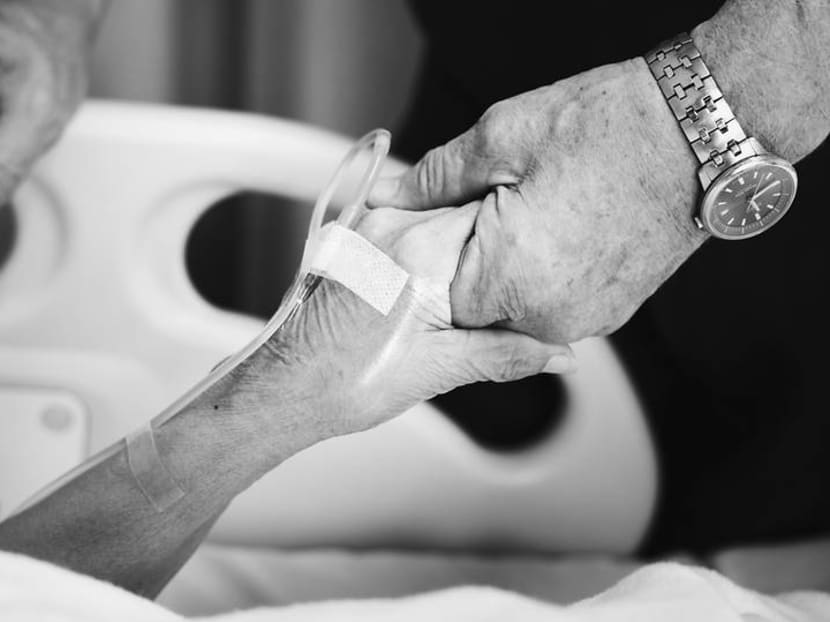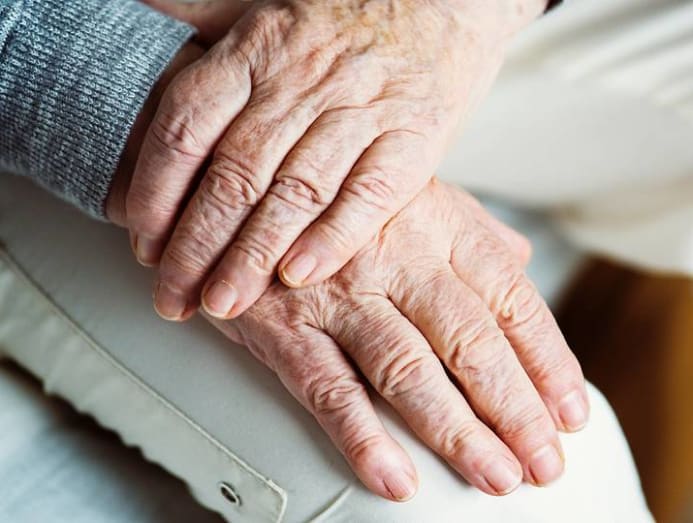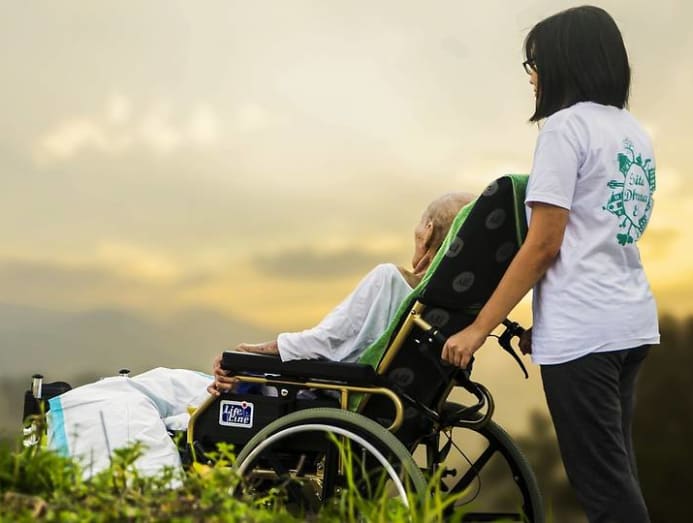commentary Commentary
Commentary: Being with my father until the end was painful but made the loss less jarring
A death witnessed is just as painful, but easier to comprehend, says the Financial Times’ Robert Armstrong.

(Photo: Pixabay/rawpixel)
NEW YORK CITY: A month or so ago my father died, in exactly the way we all hope to - at an immense age, at home, with his family, in little pain.
Early in March he was absolutely himself and now he is gone. This is as good as it gets.
In his final weeks, my mother, my sister and I marked each change. The mental transformation was mostly orderly. A sleepy lucidity gave way to episodes of incoherence and confusion.
Vivid dreams, some upsetting, quieted gradually into repose. His body ached at the end and we gave him drops of morphine.
READ: Commentary: Grief from losing loved ones to COVID-19 will spill into workplaces
By stages, brief conversations were reduced to his whispers of “thank you” and “I love you”, and then silence.
Lost appetite was his body’s first departure. From bites of solid food, to apple sauce with cream, to orange juice and Jack Daniel’s, to water.
There was a big step when, even sitting up, he began choking on liquids. From then until he lost consciousness completely we spooned ice chips into his mouth.
READ: Commentary: Your spouse or your parents? Who should decide when to take you off life support?
Dehydration took hold. His skin became waxy and his smell more pungent. His eyes sealed shut.
The bones beneath his face and hands emerged yet, surprisingly, this did not make him look any less himself. The skull beneath his skin was recognisably his own.

His breathing slowed and then became irregular, stopping for three, five, 10 seconds before gasping back. This was frightening at first. At the end, his chest stilled and only his stomach rose and fell.
When he died, just before midnight, my sister was with him. She woke me and when I touched his hand it was already cool.
Should we cover him up? I decided to, as I did not want to remember him as a corpse. They took his body away a few hours later.
READ: Commentary: We treat the business of death like it’s dirty work
DYING AT HOME
I am almost 50, and have never seen anything like this before, despite death being something we all do, and having lost grandparents, godparents, teachers and friends.
It is standard, on making this observation, to point out that we are a culture that hides death in hospitals and nursing homes, to its detriment.
This is not quite right. I’m sure it would be better if more people died at home, but who would you have share your end, other than the few souls closest to you?
READ: Commentary: Taking obituary photos and the difference between death and dying
While I have no problem talking about my father’s exit, it was something for the four of us to experience alone.
If you are very lucky, like me, the first death you witness will be a parent’s, and you will be old when it happens.
Philip Larkin, in a poem about a death – a hedgehog’s – stated the resolution that usually follows the end: “The first day after a death, the new absence/Is always the same; we should be careful/Of each other, we should be kind/While there is still time.”

I doubt that from here I will treasure each day and behave with more humanity. It’s possible. I am told psychological resolution after the death of a loved one takes a long time, perhaps a year or two, even in the best of cases.
WHERE WE ARE ALL HEADED
For now I can tell you that being present at the end of a life has changed how I feel about my own middle-aged flesh. I know a bit more, now, about where all this is headed.
This recognition is a little scary. It can make the stomach clench up. But there is also something slightly energising and liberating in vivid recognition that the sell-by date approaches.
Followers of the more morbid religions will probably have grasped this mundane point already. I’m coming to all this rather late.
READ: Commentary: Why crowds will keep heading to the cemeteries and columbaria during Qing Ming
READ: Commentary: Contemplating the future of dying
There is something simpler and more primal to say. Being present at the end has not diminished my sense of loss. But I think (granting that this conclusion is based on a sample size of one) that it made my loss less jarring.
Death is hard to imagine or conceptualise. It violates emotional logic. It may help to watch it happen.
There were, I should add by way of a coda, moments of humour. One night my father, in the grip of a dream, tried to rush out of bed, something he was not at all equipped to do safely.
My mother asked, Rodney, where ever are you going?
He looked his wife of half a century in the eye and deadpanned: “Ass over teakettle.”





